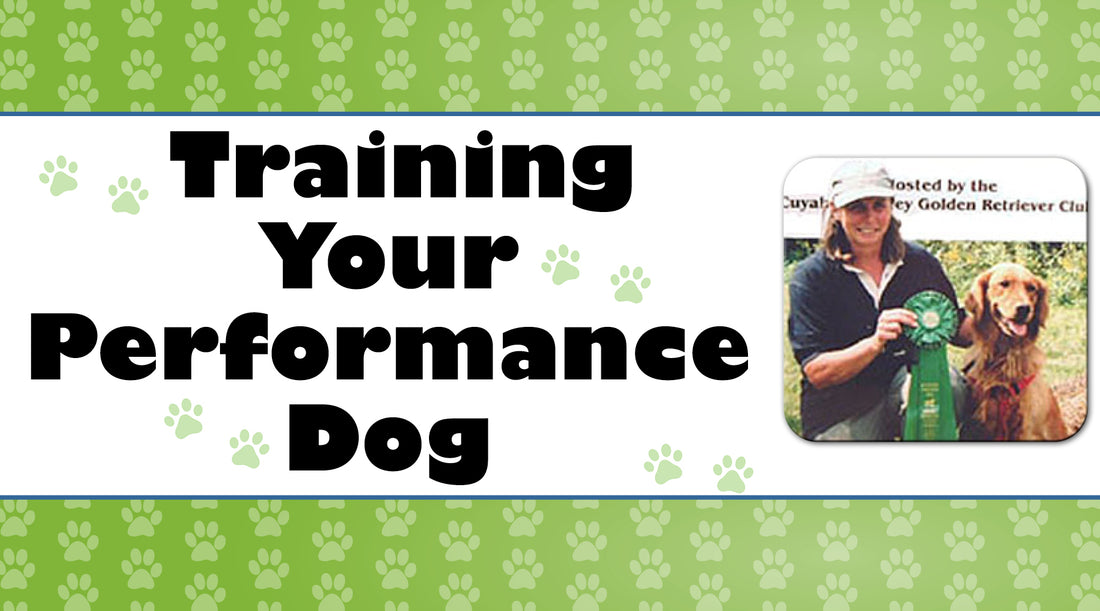Most of us who compete have very good dogs in class, at home, or wherever we go to play with them. Why then is it sometimes different when we go to a trial? Different sounds, different smells, different dogs and people – basically unfamiliar territory – can be distracting and stressful to the dog, and this is why having routines that are familiar to both of you can help your dog gain confidence.
A new environment can overstimulate your dog’s brain. In a new situation that, to your dog, is over stimulating, you may feel he is not giving you the attention you want, but in reality, he probably cannot handle all that stimulation. And since a dog’s first instinct is survival/safety, his brain may not be able to handle both attention to you and the environment. Survival skills will override attention to you. This dog needs familiar routines to feel safe and which will enable him to build mental stamina.
Overstimulated dogs will react differently. Some will get the “zoomies” and do all the obstacles as if you did not exist. Others will perform very slowly, trying to do the correct behavior in spite of the overwhelming environment, and others may shut down and not even jump. Handler pressure here or loud cheerleading can be disastrous. Familiar routines can help these dogs.
Plan on arriving early to any new venue. Leave your dog in the car and set up his “home” – a crate, x-pen, mat, or whatever is familiar and appropriate. When you get your dog out of the car, don’t just go inside. Let your dog see where he is. A dog’s natural way to check the environment is to sniff - and what do most handlers say immediately? Leave it – no sniff! Your dog needs to know where he is, so just hang out by the car for a moment and let him look around and sniff. When he seems relaxed, find a place where he can relieve himself if necessary and go inside.
Once inside, move away from the door and just relax again. Let him see where he is, and then go to his crate which can have a toy or bone inside. Sit by your dog and let him relax again. When I feel that my dog is comfortable, I like to go for a walk around the area with a toy. The toy is available to the dog, but I do not ask my dog to play. This can be too hard for a “green” dog - “I can’t play if I don’t feel safe.”
When I see that my dog is relaxing, I may start some very easy play, and if my dog buys into the game, I will play to the level my dog can handle in this environment. It may not be what you can do at home. If I can get play, then I might ask for “speak” and tricks and then go back to play. Then I put my dog away and let him rest. Each time you take your dog out of the crate, play should come easier and be stronger.
Warm up routines should be familiar and fun – entering the ring, how you take off the leash and go to the start line, and how you set up and lead out or begin, should all be a well-known routine. When your dog knows what to expect, he can then put effort into focus. End routines should also be established routines – with the dog coming to you, putting on the leash, praising, exiting the ring, celebrating, and rewarding.
Routines build confidence through familiarity. Work on the routines your dog needs.
Carolyn Fuhrer has earned over 130 AKC titles with her Golden Retrievers, including 4 Champion Tracker titles. Carolyn is the owner of North Star Dog Training School in Somerville, Maine. She is also an AKC Tracking Judge. She has been teaching people to understand their dogs for over 30 years.

